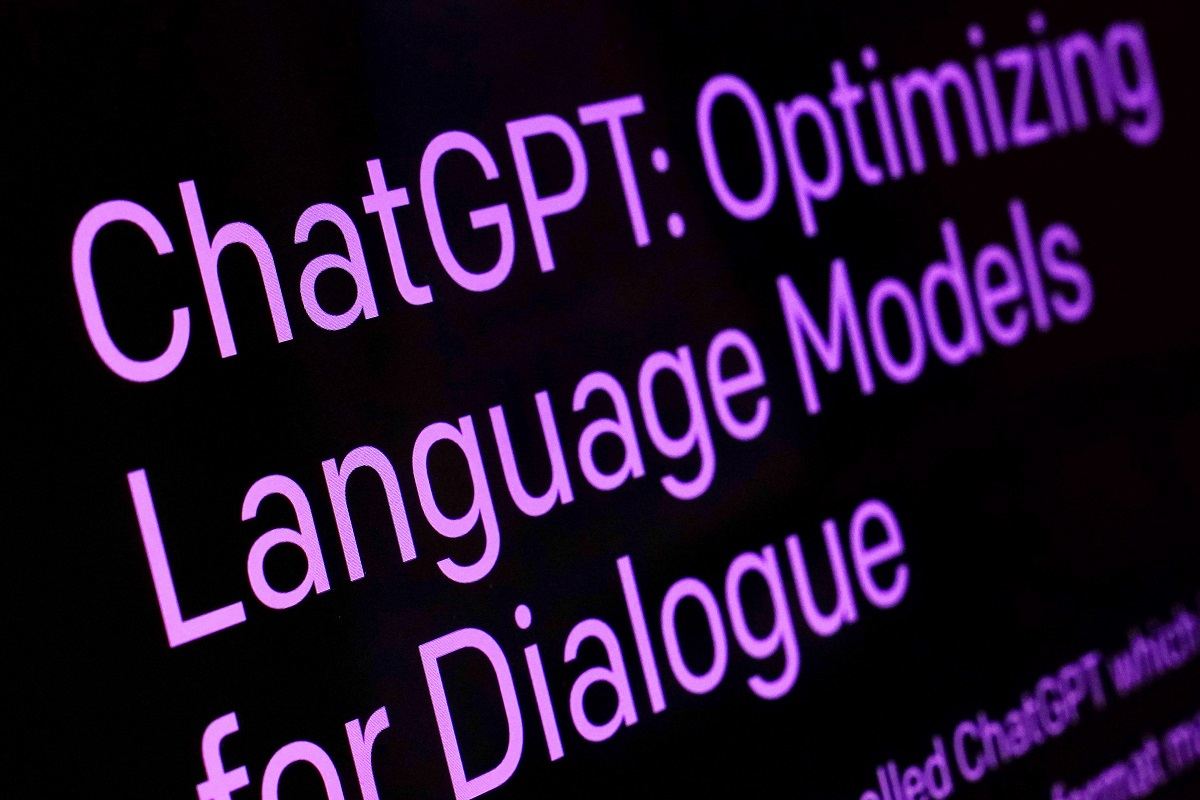
Text from the ChatGPT page of the OpenAI website is shown in this photo, in New York, Feb. 2, 2023. European lawmakers have rushed to add language on general artificial intelligence systems like ChatGPT as they put the finishing touches on the Western world’s first AI rules.
10:35 JST, May 12, 2023
European lawmakers came a step closer to passing new rules regulating artificial intelligence tools such as ChatGPT, following a crunch vote on Thursday where they agreed tougher draft legislation.
The European Union’s highly anticipated AI Act looks set to be the world’s first comprehensive legislation governing the technology, with new rules around the use of facial recognition, biometric surveillance, and other AI applications.
After two years of negotiations, the bill is now expected to move to the next stage of the process, in which lawmakers finalize its details with the European Commission and individual member states.
Speaking ahead of the vote by two lawmakers’ committees, Dragos Tudorache, one of the parliamentarians (MEPs) charged with drafting the laws, said: “It is a delicate deal. But it is a package that I think gives something to everyone that participated in these negotiations.”
Our societies expect us to do something determined about artificial intelligence, and the impact it has on their lives. It’s enough to turn on the TV … in the last two or three months, and every day you see how important this is becoming for citizens.
Under the proposals, AI tools will be classified according to their perceived level of risk, from low to unacceptable. Governments and companies using these tools will have different obligations, depending on the risk level.
German MEP Svenja Hahn told Reuters the negotiations had forced conservative and left-wing MEPs to meet halfway. “We have succeeded in finding a compromise that would regulate AI proportionately, protect civil rights, and boost innovation and the economy,” she said.
In Thursday morning’s vote, MEPs agreed to ban the use of facial recognition in public spaces, predictive policing tools, and to impose new transparency measures on generative AI applications like OpenAI’s ChatGPT.
This vote is a milestone in regulating AI, and a clear signal from the Parliament that fundamental rights should be a cornerstone of that, Greens MEP Kim van Sparrentak told Reuters. “AI should serve people, society, and the environment, not the other way around.”
The bill will be put to a plenary vote of the European Parliament in June before final terms are agreed in “trilogue” talks involving representatives of the European Parliament, the Council of the European Union and the European Commission.
After the terms are finalized and the bill becomes law, there would be a grace period of around two years to allow affected parties to comply with the regulations.
The European Parliament must enter the trilogue with the strongest possible position to protect the rights of all people inside and entering the EU, said Caterina Rodelli, EU policy analyst at non-profit organization Access Now.
AI pioneer says its threat to world may be ‘more urgent’ than climate change.
Top Articles in News Services
-

Survey Shows False Election Info Perceived as True
-

Prudential Life Expected to Face Inspection over Fraud
-

Hong Kong Ex-Publisher Jimmy Lai’s Sentence Raises International Outcry as China Defends It
-

Japan’s Nikkei Stock Average Touches 58,000 as Yen, Jgbs Rally on Election Fallout (UPDATE 1)
-

Japan’s Nikkei Stock Average Falls as US-Iran Tensions Unsettle Investors (UPDATE 1)
JN ACCESS RANKING
-

Japan PM Takaichi’s Cabinet Resigns en Masse
-

Japan Institute to Use Domestic Commercial Optical Lattice Clock to Set Japan Standard Time
-

Israeli Ambassador to Japan Speaks about Japan’s Role in the Reconstruction of Gaza
-

Man Infected with Measles Reportedly Dined at Restaurant in Tokyo Station
-

Videos Plagiarized, Reposted with False Subtitles Claiming ‘Ryukyu Belongs to China’; Anti-China False Information Also Posted in Japan
























